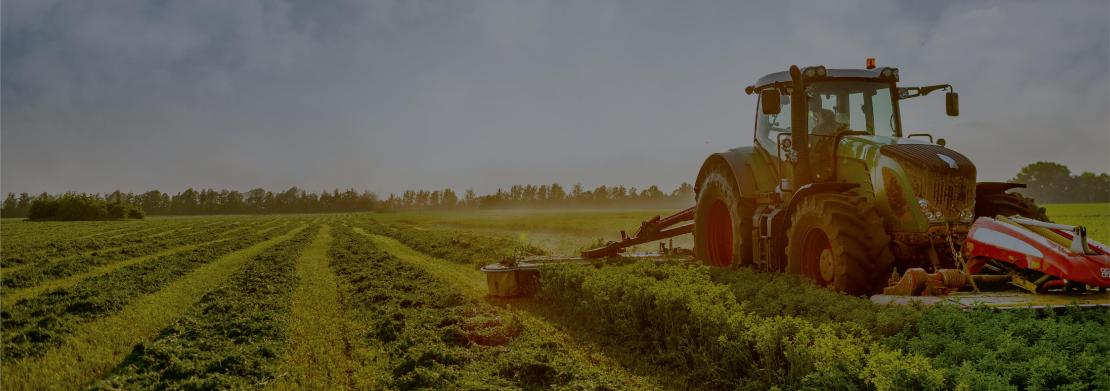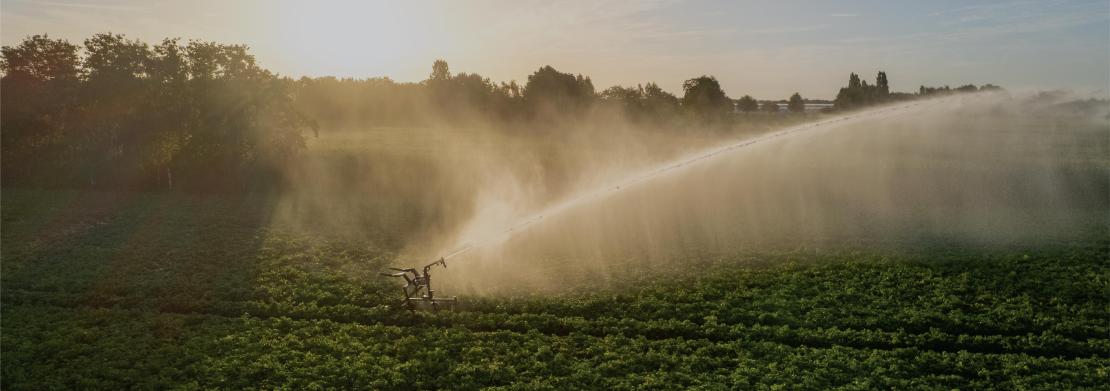Agriculture Today and Tomorrow on World Food Day
As part of the World Food Day, celebrated annually on October 16 by the Food and Agriculture Organization (FAO) of the United Nations, various topics such as global climate change, agricultural production, sustainable agricultural policies, and youth participation in agriculture were discussed. Prof. Dr. Ahsen Işık Özgüven, Vice Dean of the Faculty of Agricultural Sciences and Technologies at Cyprus International University (CIU), evaluated the food sector, water consumption, and the present and future of agriculture from a multi-dimensional perspective.
Emphasizing the role of technology in agriculture and the social responsibility of universities in this field, Özgüven stated:
“Universities should play an active role in many areas, from education and research to the implementation and promotion of smart agriculture and innovative technologies.”
1. How do you evaluate the impact of global climate change on agricultural production?
The impact of global climate change causes serious negative consequences for agricultural production. These effects range from the amount of product obtained per unit area, to product quality, and even extend to the socio-economic dimensions of countries.
2. What agricultural policies could be effective in combating rising global food prices and food insecurity? Are sustainable agricultural practices being widely adopted? Which countries are leading in this regard?
Effective policies may include price stability and subsidy strategies, investment in agricultural productivity, support for small-scale farmers, commercial and supply chain policies, and promotion of climate-friendly agriculture. The adoption of sustainable agricultural practices is increasing worldwide, but it is still insufficient. Many low- and middle-income countries face financial, technical, and institutional challenges. In general, high-income countries and regions such as the European Union, Canada, Japan, and some parts of Latin America have made more systematic progress in implementing sustainable agriculture standards. Countries like the Netherlands, Denmark, Sweden, Brazil, and New Zealand are among the pioneers in sustainable agriculture.

3. Can you provide a general assessment of the current state of agriculture in the TRNC (Turkish Republic of Northern Cyprus)? What are the biggest challenges in agricultural production on the island? What solutions would you propose?
Agriculture in the TRNC contributes significantly to the economy, especially in rural areas. The sector generally consists of small and medium-sized farms and enterprises, producing crops such as citrus, olives, carob, potatoes, and grains. Livestock farming—including goats, sheep, and poultry—also plays an important role in food production.
However, challenges like drought, rising temperatures, and decreasing water resources due to climate change negatively impact production. Limited access to modern irrigation systems, mechanization, and digital agriculture, as well as the limited international recognition of the TRNC causing export issues, are major problems.
Proposed solutions include adopting sustainable agriculture practices as a policy by producers, consumers, and the government. There should be unconditional public awareness efforts, particularly in sustainable water management, using both technology and education. This should be seen as a "philosophy of life", not just by farmers, but by the entire society, especially considering global climate change. This philosophy should be emphasized from preschool education onward.
Furthermore, this philosophy should encompass prevention of food waste and be implemented under a "zero food waste" mission. Supporting technological transformation—such as digital agriculture applications, smart water systems, and data analytics—and facilitating diplomatic and commercial initiatives to export agricultural products and local brands would also be beneficial.
4. What are the latest developments in agricultural technologies (e.g., smart farming, drone use, artificial intelligence)? What major changes await the agriculture and food sectors in the future?
Recent developments in agricultural technology include:
• Smart and precision farming
• Drones and robotic systems
• Artificial intelligence and big data
• Biotechnology and genetic engineering
• Sustainable and vertical farming
In the future, we can expect:
• Greater dominance of automation and robotics alongside AI
• Optimization of every stage of farming through data-driven agriculture
• Widespread adoption of alternative protein foods
• Increased transparency in supply chains
5. What measures can be taken in the agricultural production chain to reduce food waste?
Key measures include integration of technology in food systems, improved harvest and post-harvest techniques, modern storage and transportation systems, optimization of the supply chain, value-added processing of products, raising awareness and education of both producers and consumers and implementation of policy and incentives.
6. How can the interest of young people in the agricultural sector be increased?
Educating young people on the fact that agriculture is essential to life and will gain even more importance due to global population growth and resource scarcity is crucial. Including agriculture in school and university curricula can help increase interest. Making agriculture more technology- and innovation-oriented can make it more appealing to young people. Highlighting success stories of young entrepreneurs in the sector can inspire others. Support mechanisms such as entrepreneurship training, land allocation, low-interest loans, subsidies, and awards for successful initiatives can also boost youth involvement. Promoting cooperatives can further support young people in using their limited resources more efficiently.

7. As the Faculty of Agricultural Sciences and Technologies, what vision do you use to educate your students? Could you mention some prominent agricultural R&D projects at your university?
As the Faculty of Agricultural Sciences and Technologies, we aim to educate students within a vision that contributes to societal well-being through:
• Universal values
• Sustainability
• Ethical principles
• Scientific foundations
• Equipping them with modern professional knowledge and skills
• Enabling them to follow new information and technologies
• Encouraging continuous learning and teaching
• Supporting them to produce, research, and apply
• Preparing them to be open to development and change
• Ensuring they are competitive nationally and internationally
• Cultivating self-confident professionals who can foresee the future
In short, we aim to train our students with a forward-looking and innovative vision, integrating the latest developments in smart agriculture, sustainable agriculture, and technology both theoretically and practically into our program.
8. What is the role of universities in raising public awareness about agriculture?
Universities can play a role in raising public awareness by addressing the adverse effects of climate change globally, promoting sustainable agriculture through education and research, applying and encouraging smart agriculture and innovative technologies and communicating with the public and using media and publications to bring sustainable agricultural practices to life.
9. Message for the World Food Day:
Sustainable agriculture and conscious food consumption are the keys to feeding the world. Ensuring that every human in the universe has access to safe, nutritious, and sufficient food should be a mission. By embracing sustainability, fighting food waste, and strengthening global solidarity, we must all take responsibility and play a role in building a hunger-free and hopeful future.